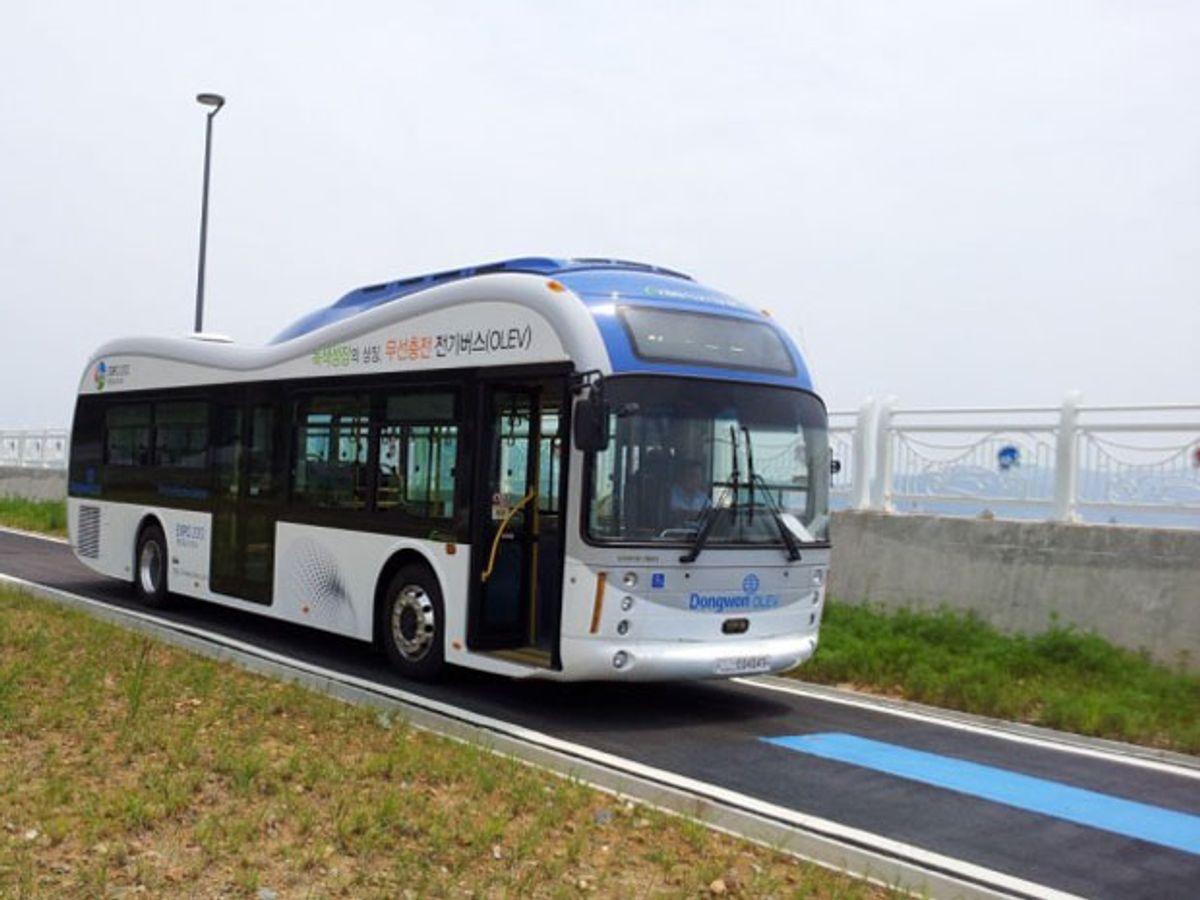Electric vehicles would have a lot more appeal if they didn't have to stand for hours while recharging their batteries. One solution is to recharge them while they move, as engineers at Korea's KAIST proposed in IEEE Spectrum back in March.
KAIST's online electric vehicle (OLEV) system has already demonstrated trams that recharge themselves while circling city parks. Today the OLEV system goes into operation on a regular commuter route in Gumi, a city in central South Korea. Two buses will ply the route, which has a roundtrip of 24 kilometers. By the end of the year, the city plans to add 10 more buses.
The scheme recalls the Greek myth of the giant Antaeus, who drew his monstrous strength from contact with the earth but was no stronger than mere mortals when held high above it. So, too, the buses in the KAIST system carry light, relatively inexpensive lithium-ion batteries but can keep on going indefinitely thanks to power beamed up to them from the road. That banishes a big bugbear of all-electric transport: range anxiety.
Underground coils produce a shaped magnetic field that resonates with receiving coils on the vehicle, transferring power so efficiently that only 5 to 15 percent of the roadway need carry the embedded gear. The buried coils save power another way, as well: they turn on only when they sense a properly equipped vehicle overhead.
Photo: KAIST
Philip E. Ross is a senior editor at IEEE Spectrum. His interests include transportation, energy storage, AI, and the economic aspects of technology. He has a master's degree in international affairs from Columbia University and another, in journalism, from the University of Michigan.



